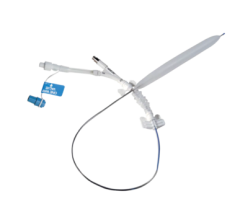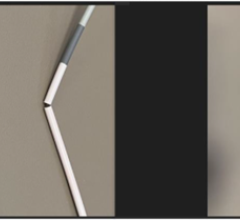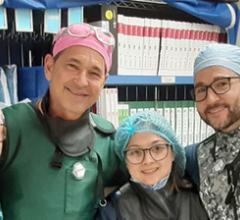May 29, 2018 – M.A. MedAlliance SA has raised $37 million to help develop and commercialize the first sirolimus micro-reservoir drug-coated balloon to treat patients suffering from peripheral artery disease (PAD). The Selution DCB is also intended to treat patients with coronary artery disease (CAD), arteriovenous fistulas (AVF) and grafts (AVG) for end-stage renal disease.
The $37 million consists of $22 million equity and $15 million in non-dilutive licensing agreements for Japan and China. This Investment round was led by a $20 million investment by Shenzhen Salubris Pharmaceuticals.
Kevin Ye, chief executive officer of Salubris, highlighted the MedAlliance investment and distribution agreement: “Sirolimus’ combination of anti-restenotic and anti-inflammatory properties have been proven clearly superior to first-generation paclitaxel drug coatings on stents, but technical challenges have precluded the transposition of this evolution in stents to the drug-coated balloons used in reperfusion procedures. Salubris is pleased to support MedAlliance progress through this strategic investment, and we look forward to working together to commercialize the company’s technology for the benefit of many millions of patients with coronary and peripheral artery disease in China”.
The proceeds from the equity financing will be used to fund European commercialization, U.S. regulatory approval and support global clinical programs.
In January 2018, MedAlliance announced a strategic agreement with Kaneka Corp., Japanese provider of percutaneous transluminal coronary angioplasty (PTCA) balloons in Japan. The agreement involves technical collaboration, product licensing, manufacturing and distribution for the MedAlliance DCB, limited to the treatment of coronary arteries in Japan.
The MedAlliance technology includes micro-reservoirs made from biodegradable polymer intermixed with the anti-restenotic drug sirolimus. These micro-reservoirs provide controlled and sustained release of sirolimus. Extended release of sirolimus from stents has shown to be highly efficacious in both coronary and peripheral vasculatures. MedAlliance’s proprietary CAT (Cellular Adhesive Technology) enables the micro-reservoirs to be coated onto balloons and adhered to the vessel lumen when delivered via an angioplasty balloon.
Encouraging primary endpoint data from the First-in-Man (FIM) study of the Selution DCB was presented at the Leipzig Interventional Course (LINC) in February 2018. Late loss of the target lesion, as measured by quantitative vascular angiography (QVA) at six months post-index procedure, was 0.19 mm. The rate of target lesion revascularization (TLR) was 2.2 percent — one of the lowest ever reported in a drug-coated balloon FIM study at six months. There were no incidences of either death or the need for minor and/or major amputations.
Subgroup data presented at CRT and Charing Cross meetings indicated similar performance in patients with long lesions and with moderately severe and severe calcifications.
For more information: www.medalliancegroup.com


 June 13, 2024
June 13, 2024 









